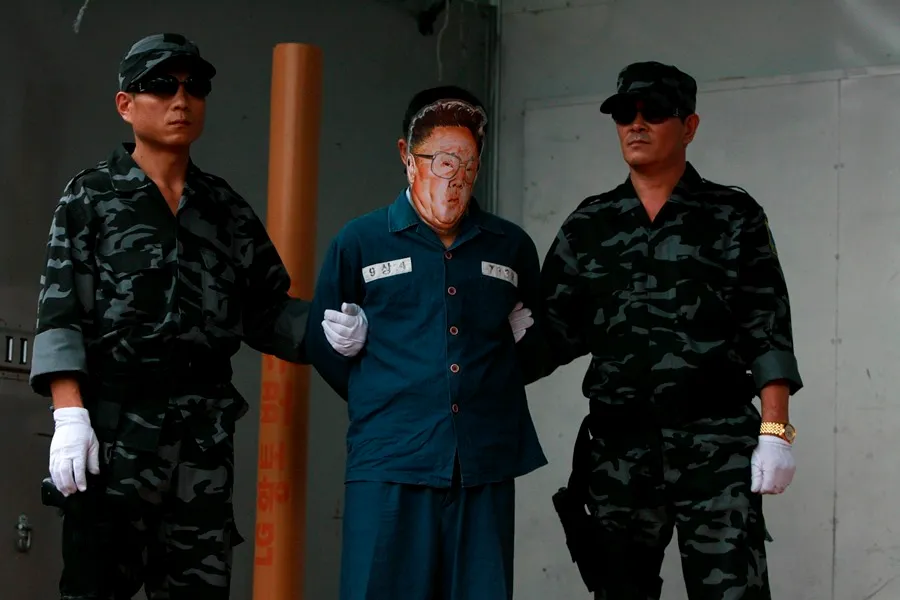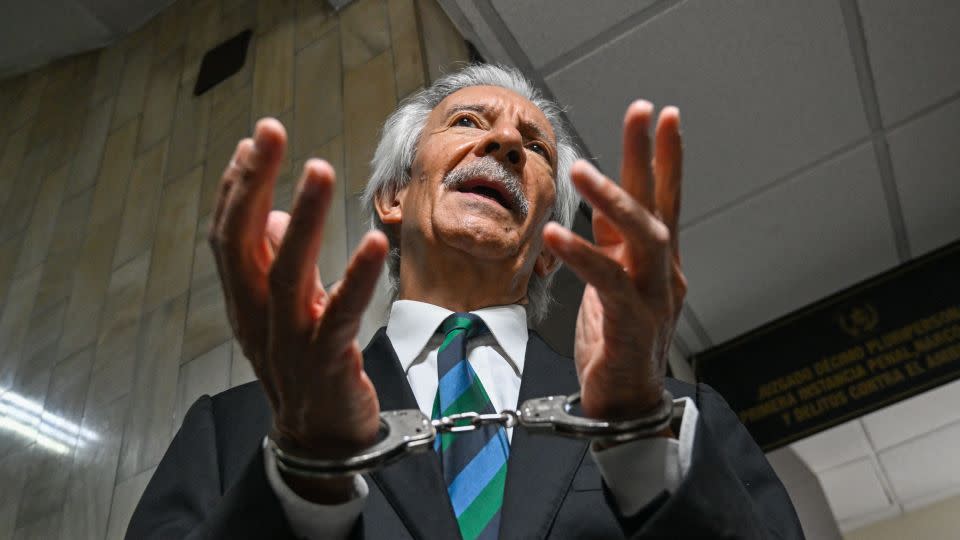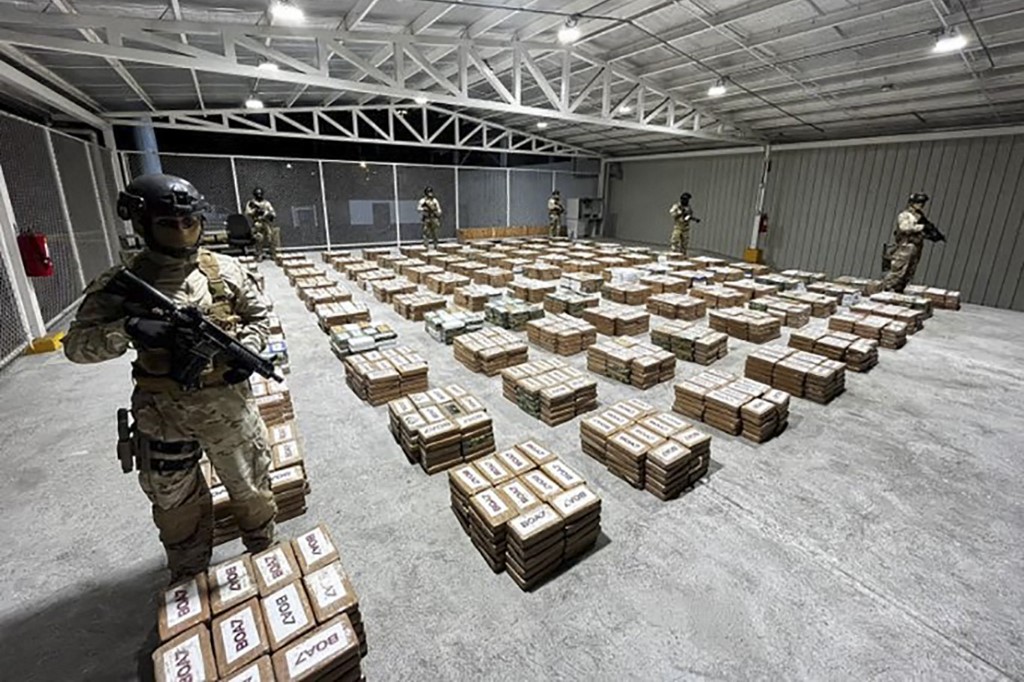Centroamérica
A UN report denounces that slavery is institutionalized in North Korea

The use of forced labor in North Korea, of which they are victims from prisoners to soldiers or citizens abroad, is “deeply institutionalized” in the country and in some cases borders on slavery, a crime against humanity, a United Nations report reveals on Tuesday.
The 84-page document of the UN Office for Human Rights, prepared through interviews conducted in the last decade with 183 North Koreans fleeing the country and now residing in South Korea, offers details about this exploitation in the isolated Kim regime.
“They were forced to work in intolerable conditions, often in dangerous sectors, without salary, free choice, possibility of resignation, protection, medical care, break time, food and accommodation,” summarized the head of human rights of the United Nations, Volker Türk, when presenting the report.
Workers were also subjected to constant surveillance, were beaten frequently, and in the case of women (main testimonies of forced labor in detention centers) they were often victims of sexual violence, the Austrian High Commissioner stressed.
The report identifies different types of forced labor in North Korea, such as taxes in prisons and other detention centers, those who suffer employees whose jobs have been assigned by the State (something very common in the communist regime), or those observed in army soldiers.
There is also this type of exploitation that violates human rights in citizens sent abroad to send foreign currency to the regime, those summoned to special mobilizations or members of the so-called “shock brigades”, usually in the agriculture and construction sectors.
Some of the crudest testimonies of the report are those offered by more than a hundred women sentenced to forced labor after being forcibly repatriated after crossing the border illegally (usually it is usually the one that separates China and North Korea, although the report does not specify it).
After having fallen into networks of trafficking people that sometimes force them to prostitute themselves or contract forced marriages, they are repatriated and in detention they often suffer sexual and physical violence, sometimes forced abortions and denial of medical and hygienic services.
Detained in prisons, re-education camps and other detention centers, the victims relate the harshness of living and working conditions in agricultural, industrial and other tasks in which they often had to meet daily production quotas and received beatings or were deprived of food if they did not comply with them.
“They sent me to grow corn, cabbage, radishes… there was no machinery, so seven or eight of us pulled a cart that would normally be used with oxen,” says one of these women.
Another detainee, destined for construction work, said in the report that he was so hungry that he ate weeds and grass, which made him sick, while another, assigned to a group that carried bags of cement, said that they did not have masks, they constantly breathed the dust of the cement and “could barely breathe.”
In the North Korean army, the report adds, soldiers, who in many cases have to perform a military service of ten years or more, are often forced to also work in agriculture or construction, in dangerous conditions and without adequate health and safety measures.
A former nurse interviewed for the report reported that many of the soldiers she treated had symptoms of malnutrition, which in the worst cases degenerated into tuberculosis.
Abroad, North Korean citizens – often with certain social privileges – are forced to donate 90% of their profits to the State, in sectors such as those already mentioned (agriculture, construction) although there are also in the medical profession or in the hospitality industry.
In order to maintain control over these citizens abroad, their passports are confiscated, they are constantly monitored and they usually live in very bad conditions, with hardly any free time or contact with their families in North Korea, the report says.
In general, the regime controlled by Kim Jong-un, inherited from his father and grandfather, controls and exploits its citizens “through an extensive system of forced labor at various levels” intended for the interests of the State rather than the citizenry, concludes the United Nations study.
A system in which every North Korean, after completing his studies or military service, is assigned to a workplace without choice, or the possibility of forming unions, and where he lives under the threat of being arrested if he does not come to work, although sometimes he does not receive a salary for it.
In view of the conclusions of the report, the United Nations Office for Human Rights calls on North Korea to abolish this forced labor “and put an end to all its forms of slavery.”
He also requests the UN Security Council to direct the case to the International Criminal Court.
Centroamérica
Guatemalan journalist José Rubén Zamora returns to prison after court revokes release

Businessman and journalist José Rubén Zamora was sent back to prison on Monday after the Second Multipersonal Criminal Court complied with an order from the Third Court of Appeals, which suspended his conditional release. The ruling followed a motion filed by the Public Ministry, arguing that Zamora posed a flight risk.
“I must comply with and enforce the order,” Judge Erick García stated during the hearing that revoked Zamora’s substitute measures, which had been in place since October last year.
Following the court’s decision, the founder of El Periódico was transferred back to prison, where he had already been incarcerated from July 2022 to October 2024.
Zamora’s defense team unsuccessfully requested the suspension of the hearing, citing two pending appeals aimed at overturning the Court of Appeals’ decision.
Centroamérica
Honduras extradites José Sosa to U.S. on cocaine trafficking charges

Honduras handed over an alleged drug trafficker to the United States on Tuesday under a bilateral extradition treaty that remains in effect after a diplomatic rift between leftist President Xiomara Castro and Washington was resolved, the Honduran Police reported.
José Sosa, a 48-year-old Honduran national, was transferred from the Támara National Penitentiary in the capital to Palmerola Airport, located about 50 km north of Tegucigalpa, according to an official statement.
“He was handed over to U.S. authorities under strict security measures,” the statement added.
The police explained that the suspected drug trafficker was wanted by a federal court in Florida on cocaine trafficking charges. His extradition was approved on April 30, 2020, but he had to serve a sentence in Honduras for illegal possession of firearms before being transferred to the U.S., the report said.
Central America
Nicaraguan Naval Force seizes cocaine on Pacific Coast, suspects escape

The Nicaraguan Army’s Naval Force reported on Tuesday the seizure of two bundles containing 80 packages of cocaine along the Pacific coast, although none of the four suspects were apprehended.
The illicit substance was seized near the Quizalá beach, in the municipality of San Rafael del Sur, Managua department. According to the military report, the four suspects “fled, leaving the drugs behind” after “detecting the presence of Army troops.”
The two “red bundles (…) contained 80 rectangular packages of cocaine,” the Nicaraguan Army stated.
The operation was conducted by the First Naval Troop Battalion “Commander Richard Lugo Kautz,” part of the Naval Force.
Authorities did not provide details on the individuals connected to the drug haul or the weight of the cocaine seized. They confirmed that the drugs were handed over to the relevant authorities for legal proceedings.
Nicaraguan authorities emphasize that they are implementing a strategy called the ‘Containment Wall,’ aimed at preventing the movement of drugs or drug-related money into populated areas. They maintain “close cooperation” with regional countries as well as the United States, Mexico, and Russia.
Nicaragua is located along a major drug trafficking corridor from South America to North America, where Mexican cartels operate, and the primary consumers are located.
-

 Internacionales2 days ago
Internacionales2 days agoErik Prince Backs Ecuador’s Daniel Noboa in Fight Against Crime and “Narcoterrorism”
-

 Central America4 days ago
Central America4 days agoPanama’s former president Martinelli claims political enemies tried to kill him
-

 Central America2 days ago
Central America2 days agoGuatemala’s Legal Chief Shot Dead in Parking Lot: Investigation Underway
-

 International4 days ago
International4 days agoJavier Milei vows to work ‘side by side’ with the U.S. on trade rules
-

 Central America1 day ago
Central America1 day agoHonduras Hosts CELAC Summit Amid Regional Concern Over U.S. Deportations
-

 International1 day ago
International1 day agoTeachers in Southern Mexico Bring Education to Stranded Migrant Children
-

 Central America1 day ago
Central America1 day agoMulino and Orsi Highlight Shared Vision After Panama Joins Mercosur as Associate State
-

 Central America1 day ago
Central America1 day agoTrump Administration Asks Supreme Court to Block Return of Deported Salvadoran
-

 International3 hours ago
International3 hours agoRussia and US to Meet in Istanbul for Diplomatic Talks on April 10
-

 International3 hours ago
International3 hours agoMaduro Announces Economic Emergency Decree Amid Growing Tensions with the U.S.
-

 International3 hours ago
International3 hours agoScience Brings Back the Extinct Direwolf with Successful De-Extinction Project
-

 Sports3 hours ago
Sports3 hours agoNeymar Returns to Santos Training After Month-Long Injury Layoff
-

 Central America3 hours ago
Central America3 hours agoAudit Exposes Major Breaches in Panama Canal Port Concession, $300 Million Owed to State
-

 International3 hours ago
International3 hours agoTransgender Student Arrested at Florida Capitol for Using Women’s Restroom Under New State Law















